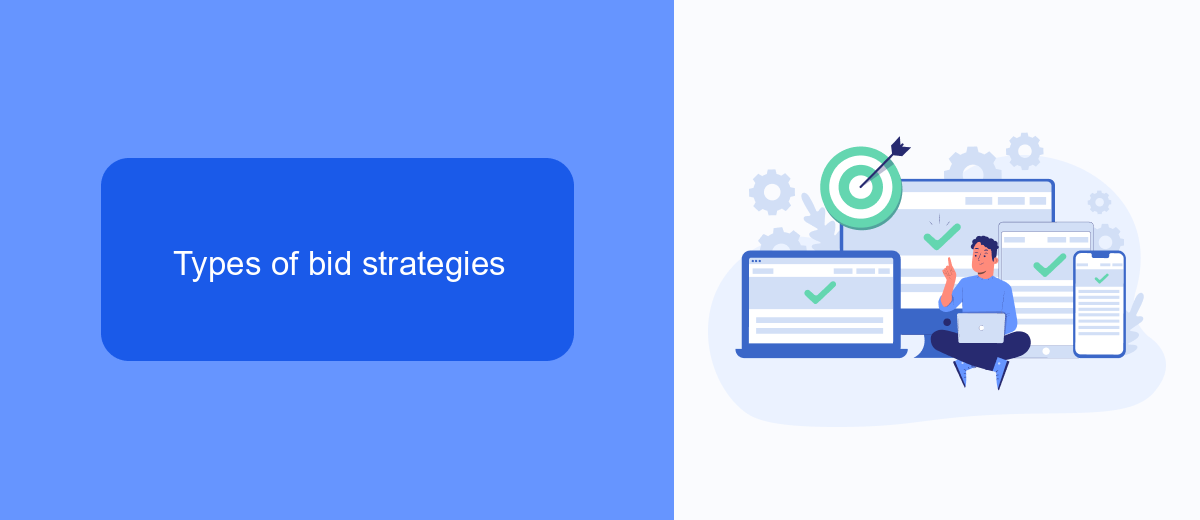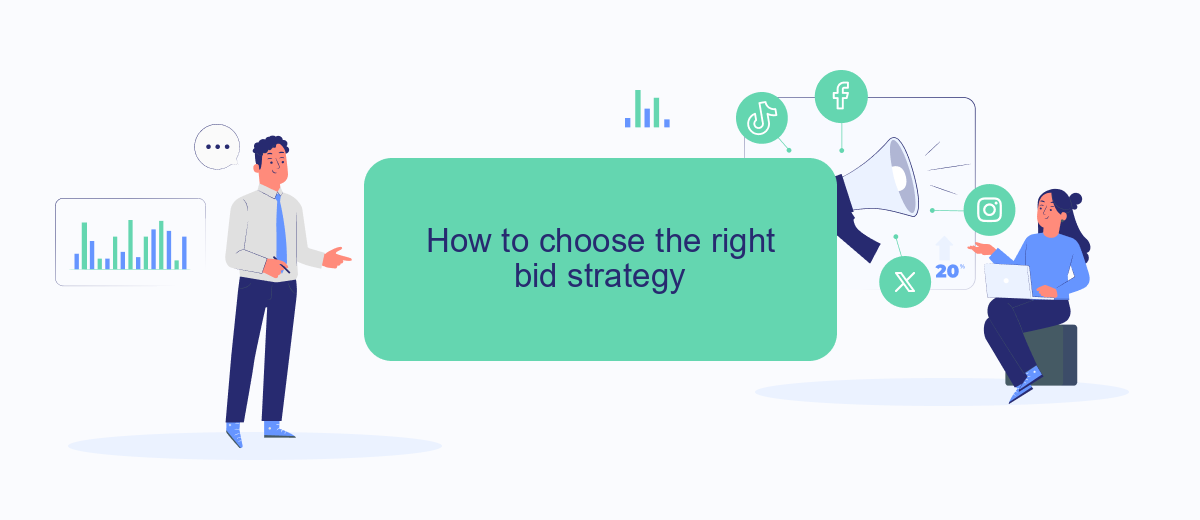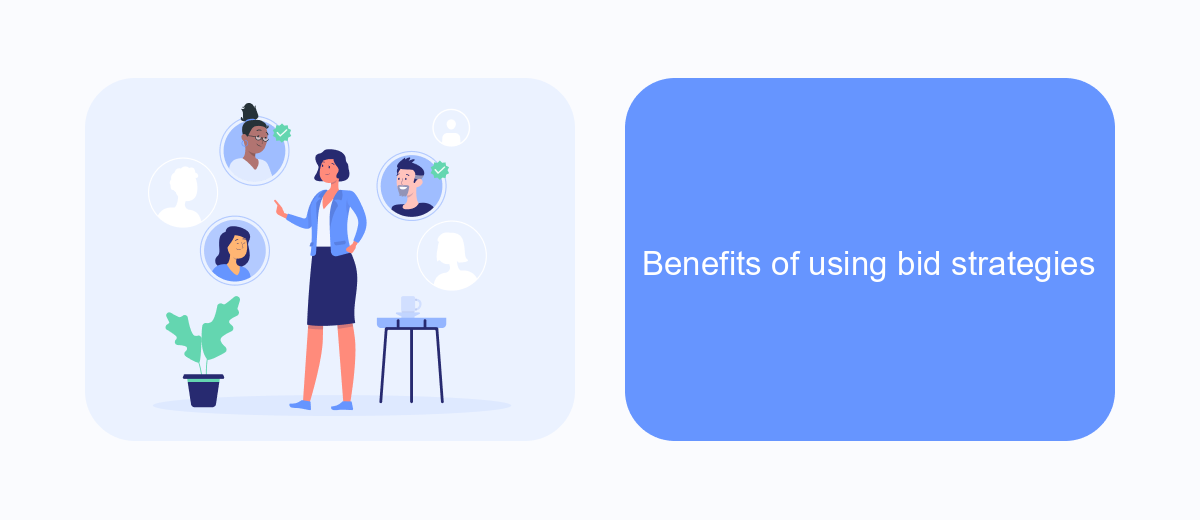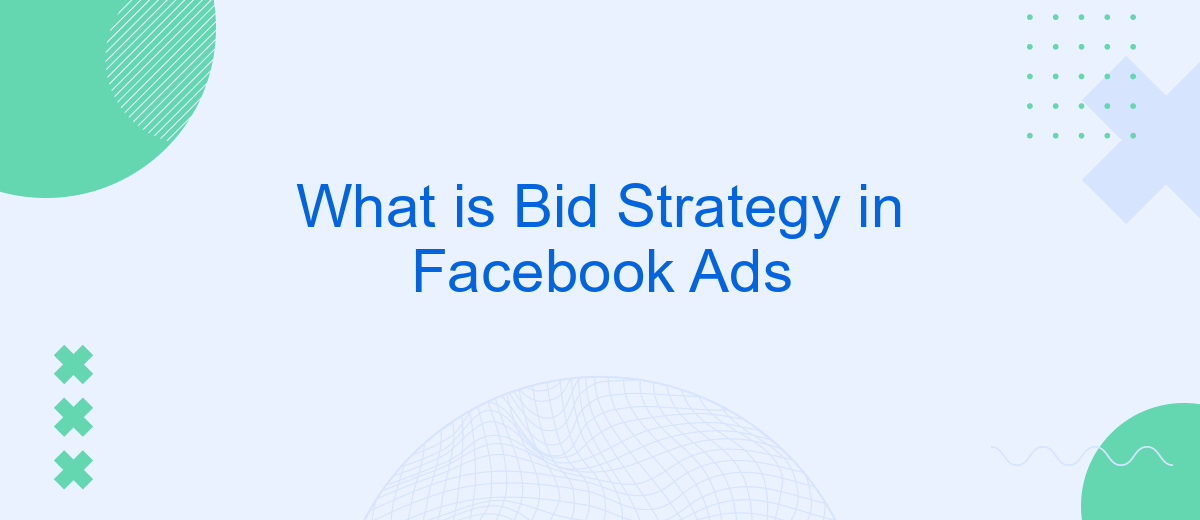A bid strategy in Facebook Ads is a crucial component that determines how much you're willing to pay for your ads to achieve desired outcomes. It directly influences the efficiency and effectiveness of your advertising campaigns. Understanding different bid strategies can help you optimize your budget, maximize your reach, and achieve specific business objectives such as increased conversions or brand awareness.
Bid strategy overview
Bid strategy in Facebook Ads is a crucial component that determines how your ad budget is spent and how your ads are delivered to your target audience. It involves setting the right parameters to optimize performance and achieve your campaign goals, whether it's maximizing conversions, clicks, or impressions.
- Lowest Cost: This strategy aims to get the most results for your budget.
- Cost Cap: Ensures you stay within a specific cost per action.
- Bid Cap: Sets a maximum bid for each auction, controlling costs tightly.
- Target Cost: Aims to maintain a consistent average cost per action.
Choosing the right bid strategy depends on your campaign objectives and budget constraints. For seamless integration and management of your Facebook Ads data, services like SaveMyLeads can automate the process, ensuring your leads are efficiently captured and managed across various platforms. This can significantly enhance your ad performance and ROI.
Types of bid strategies

Facebook Ads offers several bid strategies to help advertisers achieve their specific campaign goals. The most common types include Lowest Cost, which aims to get the most results for your budget, and Cost Cap, which seeks to maintain a stable cost per result. Another popular option is Bid Cap, where advertisers set a maximum bid for their ads, ensuring they don't spend more than a specified amount per action. Additionally, there is the Target Cost strategy, which focuses on maintaining a consistent average cost per result over the campaign's duration.
For those looking to integrate their Facebook Ads with other services, tools like SaveMyLeads can be invaluable. SaveMyLeads allows seamless integration with various platforms, automating data transfer and ensuring that your ad performance metrics are easily accessible across different systems. By leveraging such services, advertisers can streamline their workflows, enhance data accuracy, and ultimately make more informed decisions about their bid strategies.
How to choose the right bid strategy

Choosing the right bid strategy for your Facebook Ads can significantly impact your campaign's success. The right strategy depends on your specific goals, budget, and audience. Here's a step-by-step guide to help you make an informed decision:
- Define your campaign objectives: Are you looking to increase brand awareness, drive traffic, or boost conversions? Your objective will guide your choice of bid strategy.
- Consider your budget: Different bid strategies require different budget levels. Make sure your budget aligns with your chosen strategy to avoid overspending.
- Analyze your audience: Understanding your target audience's behavior can help you select a strategy that maximizes engagement and minimizes costs.
- Test and optimize: Start with a small budget to test different bid strategies. Use Facebook's analytics tools to monitor performance and adjust your strategy accordingly.
- Utilize integration services: Platforms like SaveMyLeads can automate data transfer between Facebook Ads and your CRM, ensuring you have up-to-date information for better decision-making.
By following these steps, you can choose a bid strategy that aligns with your campaign goals, budget, and audience. Remember to continually monitor and adjust your strategy to achieve optimal results.
Benefits of using bid strategies

Implementing bid strategies in Facebook Ads can significantly enhance the performance and efficiency of your advertising campaigns. By automating the bidding process, advertisers can focus more on optimizing their ad content and targeting, rather than manually adjusting bids.
One of the primary advantages of using bid strategies is the ability to maximize your return on investment (ROI). Automated bidding ensures that your ads are shown to the right audience at the right time, increasing the likelihood of conversions while staying within your budget.
- Improved ad performance through optimized bidding
- Increased efficiency and time savings
- Better budget management and cost control
- Enhanced targeting and audience reach
For businesses looking to further streamline their advertising efforts, integrating services like SaveMyLeads can be highly beneficial. SaveMyLeads automates the process of capturing and managing leads from Facebook Ads, allowing you to focus on what matters most: growing your business. By leveraging such tools, you can ensure that your bid strategies are not only effective but also seamlessly integrated with your lead management systems.
Managing bid strategies
Managing bid strategies in Facebook Ads involves continuous monitoring and adjusting to achieve the best results for your campaigns. Start by setting clear goals for your advertising efforts, such as increasing brand awareness, driving traffic, or generating leads. Use Facebook's automated bid strategies like Lowest Cost or Target Cost to let the platform optimize your bids based on your objectives. Regularly review your campaign performance metrics to identify areas for improvement and make data-driven decisions on whether to increase or decrease your bids.
Integrating third-party tools can further enhance your bid strategy management. SaveMyLeads, for example, is a service that automates the process of transferring leads from Facebook Ads to various CRMs and other platforms. By ensuring that your leads are promptly and accurately captured, you can better analyze the effectiveness of your bid strategies and make timely adjustments. Moreover, leveraging such integrations helps in maintaining a seamless workflow, allowing you to focus on optimizing your campaigns without manual data entry.
FAQ
What is a bid strategy in Facebook Ads?
How do I choose the right bid strategy for my campaign?
Can I change my bid strategy after the campaign has started?
How does bid strategy impact my ad performance?
Is there a way to automate bid strategy adjustments?
What do you do with the data you get from Facebook lead forms? Do you send them to the manager, add them to mailing services, transfer them to the CRM system, use them to implement feedback? Automate all of these processes with the SaveMyLeads online connector. Create integrations so that new Facebook leads are automatically transferred to instant messengers, mailing services, task managers and other tools. Save yourself and your company's employees from routine work.
